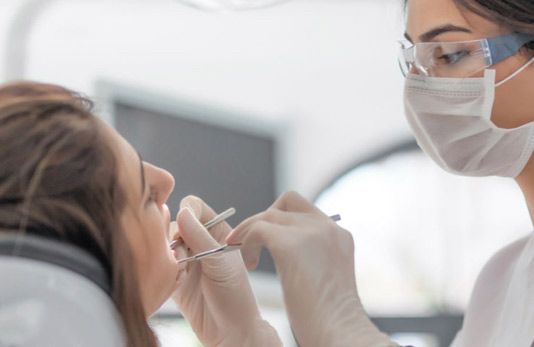Smokers twice as likely to need root canal treatment

Need another reason to stop smoking? Quitting might help you avoid a root canal.
A 2020 review found that tobacco smokers have an increased chance of having a root canal. One study found that cigarette smokers were 1.7 times more likely to have root canal treatment than nonsmokers. This number decreased in people who quit cigarette smoking. And the risk of a smoker needing root canal treatment increased with more years of smoking and decreased with length of abstinence.
Smoking and root canals: What's the connection?
A root canal treatment is designed to remove damaged or infected tissue from the root canals of the tooth. It can help save a tooth that might otherwise be at risk of extraction, and it can preserve your oral health.
While the studies don’t explain why the risk for root canals is increased among cigarette smokers, some suggest that smoking's weakening of the body's ability to fight infections is to blame. Other studies have also suggested that smokers experience more dental cavities, which is a major contributor to root canal treatment.
Smoking and your oral health: How they're related
For both men and women, cigarette smoking has been well established as a primary risk factor for oral cancer, lung cancer, coronary heart disease and other adverse health effects. Smoking also interferes with healthy blood flow, and can increase the risk of dry mouth, which can trigger oral infections, gum disease, cavities and other common dental health problems. Smoking can inhibit healing and increase the risk for periodontal disease and complications after dental treatments.
If you’re concerned about the effects of smoking or you’re interested in quitting, talk to your dentist or physician. You may benefit from smoking cessation programs, and medications are available to support your efforts.
Last updated January 14, 2022
Related articles:
The oral health information on this website is intended for educational purposes only. Always consult a licensed dentist or other qualified health care professional for any questions concerning your oral health.


